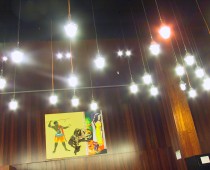



In 1932, a couple years after Keynes’s famous paper on the utopian possibilities of an automated future, Bertrand Russell weighed in on the topic too — what happens when robots do all the jobs?
Is work really such a virtue? Why not go happily into idleness?
To do this he first has to tackle some bad arguments, and himself has bad arguments to do so. Stuff like “idle hands are the devils plaything” or “we should save not spend”. This is cobwebbed proto-economics.
Some nice arguments though are indeed there. I mean, he won the Nobel Prize and invented the Barber Paradox because he is awesome, and it shows here.
During WW1, with all the able-bodied men utterly wasting their time on destructive efforts at the front, the world manage to produce not only all it needed plus more — to burn up in conflict — with a less-skilled workforce back home. Clearly there is always surplus labor around.
Or the “duty to work”, Russell argues is rooted in the ideology of Slavery. You must work. Then in the post-Slavery era of tycoons and factories, the ideology is still “You must work (for a little money).”
Meanwhile the best job is not a) working moving matter around but b) giving orders or even better c) earning rents of capital. That’s hardly work.
Yet in some great civilizations the capital owners turned to leisure — not “work” — to do great things (Athenian art, science, democracy or event the London Royal Academy gentlemen-scientists).
And isn’t it weird that “leisure” is mainly an epithet hurled against the poor but never at stay-at-home Moms or inheritance-backed idle folks. (This is Russell growling in 1932 — something like “these fat cats won’t LET their women work but demand that the poor must work or die!”)
Indeed work and leisure seem to separate as two classes — the working class and leisure class — because society makes no effort at social justice circa 1932. Now it does moreso, and perhaps informed further by the necessary incentives of competition and markets to make the world turn.
Why can’t we come up with a way to divide the work and the leisure. Like a simple thought experiment of everyone working half-days, so employment would be double. (Maybe that’s happening now, in our Freelance and 24/7 Tech Economies where we do have seamless on/off and multiple job-parts…)
Here is something good that would happen: in the leisure part of your day, you would have a robust base of experience to source from as you invent new economic models or write new epic poems. Before, the University dons, were too isolated from real life to be part of it. (Think of it like Wal-Mart’s “everybody works a day in the store” or Amazon’s day in the warehouse or Silicon Valley’s product dogfooding.)
And finally the essential point, and one we have arrived at again in 2017 with a Luddite Cretin President: modern times are making some people rich and overworked, leaving many others poor, idle and angry. It doesn’t have to be this way.
Even shorter tl;dr:
Russell, if you don’t need to work, should you just chill? – No, do something cool instead of work.
harpers.org/archive/1932/10/in-praise-of-idleness/

You must be logged in to post a comment.